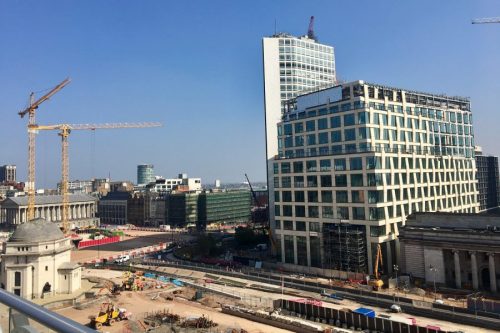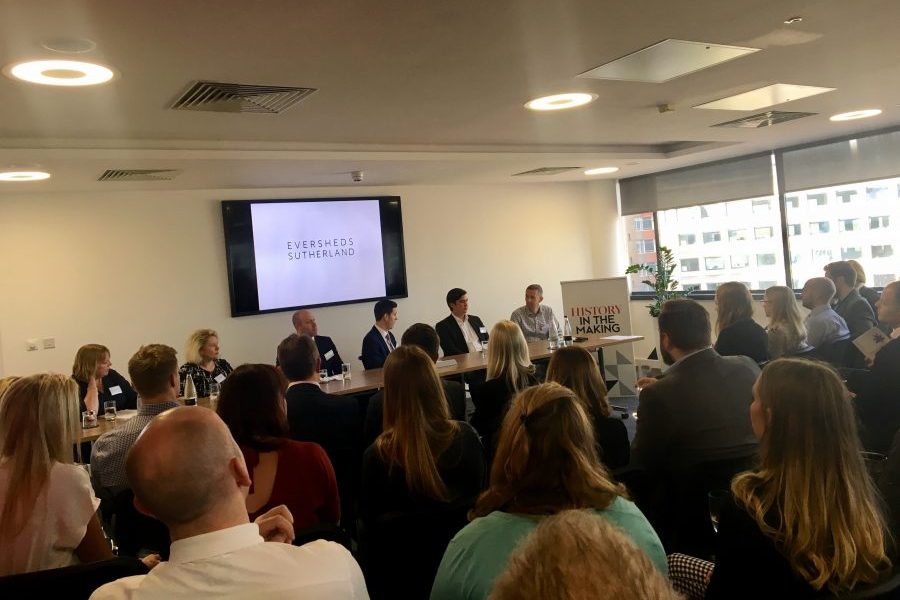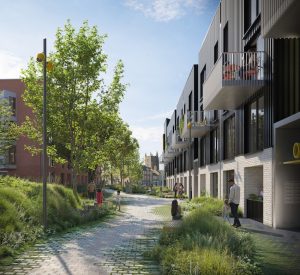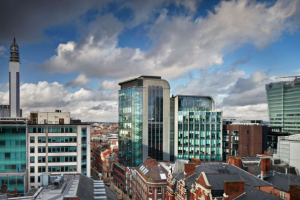Transport key as Birmingham seeks its route to prosperity

The pace of change across Birmingham continues to transform how the city looks, shifting its centres of gravity and opening up opportunities for development and renewal.
At an Eversheds Sutherland event, a panel of property and business professionals from across the city examined the opportunities and challenges facing Birmingham in the years ahead.
The city has already seen huge changes in recent years while the cranes across Birmingham’s skyline provide a daily reminder of the scale of development that is on site.
“A number of years ago there weren’t the residents within the city centre but more people are living in the city centre now in Birmingham,” said Phil Innes, founder of Loki Wines. “That’s essential for the city centre economy.
“When I initially said I was going to set up in Birmingham, people genuinely said ‘you are absolutely mad, why are you doing this? No-one buys wine there’.
“I really believed in the trajectory of the city and over the past six and a half years I have been there it has proven that.”

Fran Howell, head of corporate banking, HSBC UK, said: “Around 18% of our small businesses are in the Birmingham region, that compares with about 21% in London so there’s not a lot of difference.
“If you look at our lending for SMEs, 21% of our book is in the Birmingham region and 10% in London. That shows the drive in terms of investment and growth potential in this region.
“SMEs in this region are actually more optimistic on growth – 67% were optimistic for growth compared with 57% nationally.
“These key drivers – the rebalancing, the opportunities – were behind the group making a strategic investment of over £200m here.”
Deborah Kermode, chief executive of Midlands Art Centre (MAC), which is based in Edgbaston’s Cannon Hill Park, believes more consideration needs to be placed on the city’s cultural and leisure assets.
She said: “Those assets are really important, not only for people moving to the city but also for residents. 82% of our visitors to the MAC are residents. They want to enjoy what the city has to offer and that’s incredibly important.
“When I was at the Ikon Gallery our chairman was Glenn Howells, the architect, and he used to say ‘buildings are important, but it is the gaps between the buildings’. I think that’s really true about squares and parks and all of those wonderful places that give a personality to the city so that it doesn’t feel generic.”
Bringing together the different areas of the city is a challenge that the city council is conscious of, but the solution can still be difficult to find.
Andrew Fuller, city design manager at Birmingham City Council, said: “I am from Liverpool and Liverpool as a city holds itself together much better as one complete proposition. Newcastle and Manchester also hold their cultural offer together much better.
“The weakness of Birmingham is it is so disparate and broken up and we don’t all get behind it.
“The big debate we are having at the moment is how do we pull that together.
“It’s not just the role of planning, or just the role of anyone, to say ‘this is how it happens’ but there is an issue there.”

The panel at Eversheds Sutherland’s Building Birmingham forum
Kermode, who had taken an hour to make the 2.4-mile journey from her Edgbaston base to the panel discussion held at Argent’s office on the Paradise development, argued that transport infrastructure was key to solving the issue.
“It would be an absolute game-changer for us if we could pull the tram line down from the city centre to Edgbaston,” she said. “It would change things not just for tourism and visitors but for our employees as well.
“There’s then the opportunity to build out from that, not just for residential but also for companies to have an alternative to the city centre.
“It bugs me about this central hub and the spokes that go out in each direction. The number 11 bus can’t be responsible solely for moving people around the city. The residents have got to be able to get around otherwise we continue the segregation. We need to open up so people can experience the whole city.”
Fuller agreed about the importance of transport in driving economic improvements.
“Connectivity is the route to prosperity,” he said. “The prosperous, well-functioning parts of the country are that because they are well connected.
“Hopefully with HS2 it will be a two-way benefit. London will naturally benefit but we have the development opportunities and the investment opportunities.”









